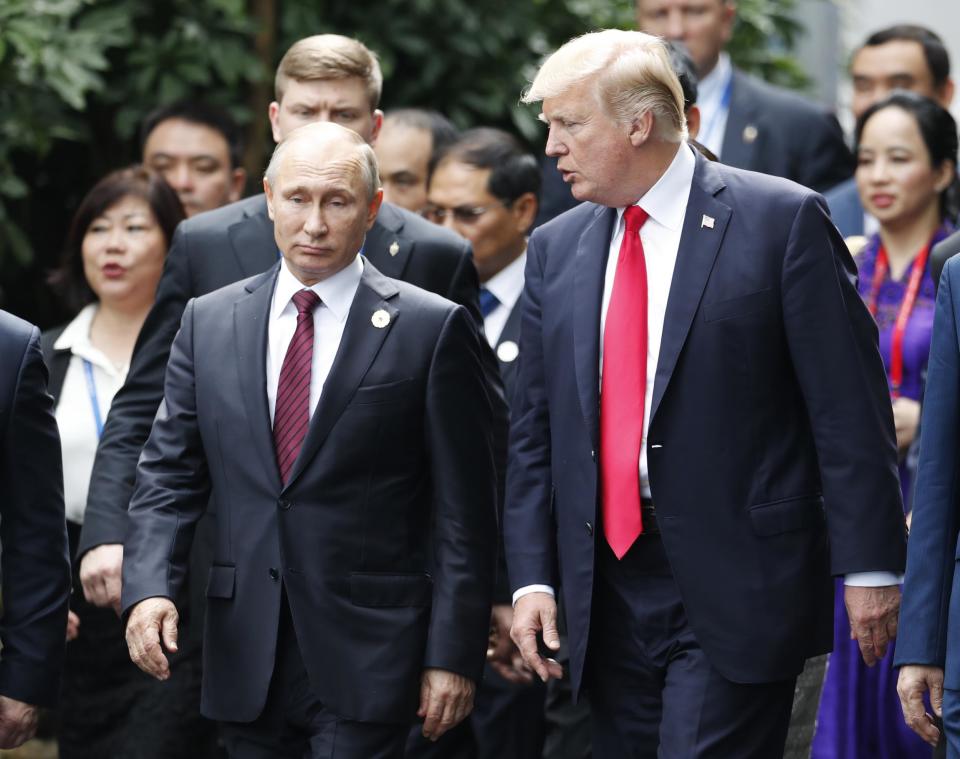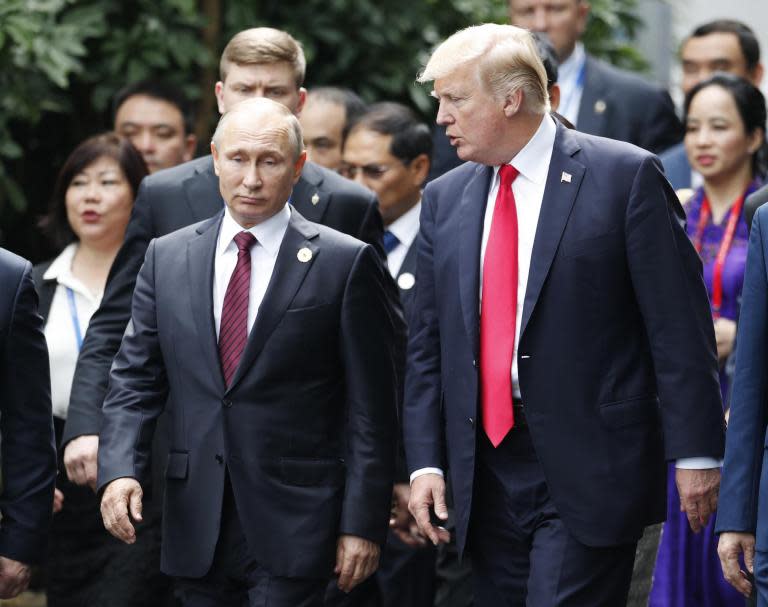Whether Russia meddles in the US midterms or not, the damage to democracy has already been done
With just over a fortnight to go until the US midterm elections, many eyes will be on the lookout for evidence of Russian meddling.
Two years ago, Russia’s efforts not only resulted in the hacking of Democratic Party computers but also the widespread dissemination of conspiracy theories, straight up fake news, and divisiveness by well-funded trolls. Donald Trump might still not be keen to accept that this was so – but more or less everyone else seems to, including the FBI. Even the president acknowledged it once, before hurriedly back-tracking.
As to whether the interference propelled Trump to the White House, well that is a different question – and probably one which will be debated for years to come. This time round, there will be greater scrutiny of online communications around the election so perhaps less obvious room for Kremlin-ordered shenanigans. Yet experts who spoke to The Independent’s Oliver Carroll last week suggested that US election systems remain vulnerable to attack. Would Russia risk a direct assault on voting technology though?
Indeed, with Donald Trump having vacillated over whether to be Vladimir Putin’s chum or his enemy, it is not necessarily clear what outcome the Russian government might prefer to see in the midterms. The decision of the US apparently to withdraw from the Intermediate-Range Nuclear Forces Treaty this weekend was certainly met with a frosty reception in Moscow, and will play to the notion that if anybody is shoving the world back to Cold War-era politics, it’s Trump, not Putin.
Nevertheless, on Friday the US Department of Justice confirmed that a Russian woman had been indicted on charges related to engaging in “information warfare against the United States”. Elena Alekseevna Khusyaynova, a resident of St Petersburg, is accused of being the operator of Project Lakhta, which sought – according to the US authorities – to “sow discord in the US political system and undermine faith in our democratic institutions”.
Khusyaynova and her team of trolls are said to have gone to considerable lengths to take on the guise of American political activists, posting social media comments on a range of controversial topics in order to “create political intensity through supporting radical groups and to aggravate the conflict between minorities and the rest of the population”.
Not all the trolls were said to have taken on the same ideological perspectives. Indeed, there is evidence from other examples that such individuals sometimes operate multiple accounts in order to disagree with themselves: the core aim being simply to create the impression of disunity among the resident population.
According to US investigators, Project Lakhta was bankrolled – to the tune of £27m – by Evgeny Viktorovich Prigozhin and two firms under his control (both of which have already been indicted by the Mueller enquiry in relation to 2016 election meddling, along with Prigozhin himself). Prigozhin goes by the moniker “Putin’s cook”, having made his name (and gained Putin’s favour) in the restaurant industry.
On the face of the new charge then, Russian attempts to “game” election discourse in foreign states are continuing apace. European governments and institutions are bracing themselves for similar interference with regard to key elections on the continent next year too.
What, however, would Russian meddling mean for the US midterms? If trolls have already been hard at work, and have been spotted – as the charge against Khusyaynova would suggest – then their work has arguably been done. After all, the key objective is not to aid the Republicans but to undermine American faith in democratic government and its institutions.
Indeed, if enough people in the US believe that the activities of Russian actors have the potential to impact the election result, then there will inevitably be room to debate the veracity of the result. The irony is that this will not necessarily be to the benefit of the Democrats. In the event that the party’s candidates have a good day on 6 November, Trump will doubtless deploy the same narrative about foreign interference that many of his opponents did after the presidential election of 2016.
This, in the end, is why governments and tech corporations must do more to protect the integrity of electoral processes from external intervention: because the victim is not an individual candidate, or even a particular political party, but democracy itself.

 Yahoo News
Yahoo News 

